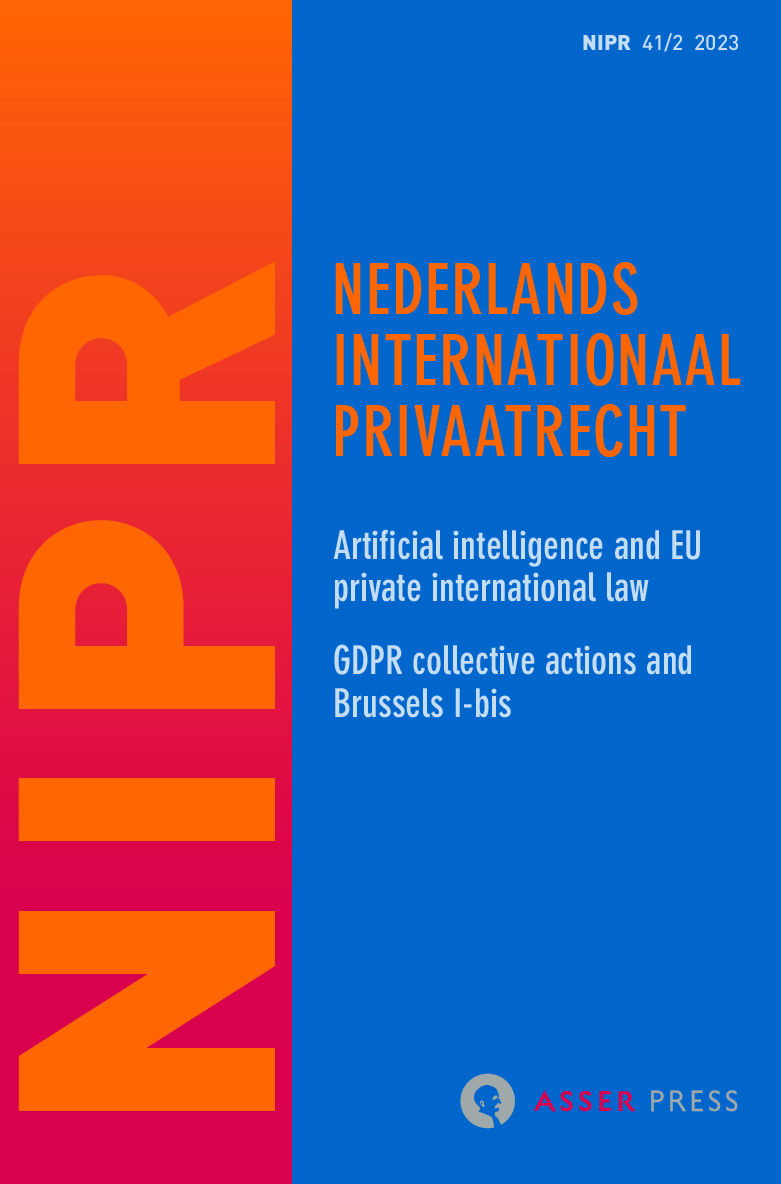Dutch Journal of PIL (NIPR) – issue 2023/2

The latest issue of the Dutch Journal on Private International Law (NIPR) has been published.
NIPR 2023 issue 2
Editorial
C.G. van der Plas / p. 197
Articles
K.C. Henckel, Issues of conflicting laws – a closer look at the EU’s approach to artificial intelligence / p. 199-226
Abstract
While newly emerging technologies, such as Artificial intelligence (AI), have a huge potential for improving our daily lives, they also possess the ability to cause harm. As part of its AI approach, the European Union has proposed several legislative acts aiming to accommodate and ensure the trustworthiness of AI. This article discusses the potential private international law impact of these legislative proposals. In doing so, it – inter alia – addresses how the newly proposed legislative acts interact with existing private international law instruments, such as the Rome II Regulation. In addition, it questions whether there is a need for specific rules on the private international law of AI.
Silva de Freitas, The interplay of digital and legal frontiers: analyzing jurisdictional rules in GDPR collective actions and the Brussels I-bis Regulation / p. 227-242
Abstract
The General Data Protection Regulation (GDPR) has provided data subjects with the possibility to mandate representative organizations to enforce rights on their behalf. Furthermore, the GDPR also contains its own jurisdictional scheme for the enforcement of the rights of data subjects. In this context, judicial and scholarly discussions have arisen as to how the procedural provisions contained in the GDPR should interact for properly assigning jurisdiction in GDPR-related collective actions. In this article, I will address this question to argue that both jurisdictional grounds provided by the GDPR are available for representative organizations to file collective actions: the Member State in which the controller or processor is established and the Member State in which the data subjects reside. Furthermore, in order to exemplify the impact of national law on such interaction, I will also assess how some legal provisions contained in the WAMCA may impinge upon the rules on jurisdiction contained in the GDPR.


